Organizers
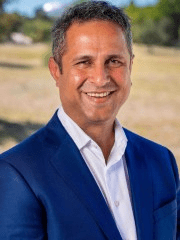
Dr. Krishna Sampigethaya
Dr. Krishna Sampigethaya

Dr. Krishna Sampigethaya is currently the Chair for the Department of Cyber Intelligence and Security at the Embry‑Riddle Aeronautical University in Prescott, AZ, a DHS/NSA designated Center of Academic Excellence for Cyber Defense; offering one of the world's few ABET accredited cybersecurity degree programs; a member of the US CYBERCOM Academic Engagement Network and the RSA®C Security Scholar Program; a DoD Cyber Scholarship Program site; and the only NSF CyberCorps Scholarship for Service (SFS) institution for aviation and aerospace cybersecurity.
Krishna received his Ph.D. in electrical engineering from the University of Washington (2007) and was the first to defend a thesis on connected vehicle privacy and aircraft cyber security. He then joined The Boeing Company and was selected early as the first Associate Technical Fellow for aviation cyber-physical security. He was also the first Associate Director for cyber security at the United Technologies Corporation (UTC) Research Center.
Krishna founded the first aviation cyber security technical committee, sponsored by the SAE in 2008, and has organized cyber security tracks at AIAA, IEEE, and SAE aerospace conferences. He has served on the RTCA SC-216 standard committee. He co-edited the first special issue on cyber-physical systems, published in the first centennial year issue of the Proceedings of the IEEE journal. With over 65 papers, 24 keynotes/plenaries, and 24 patents in aviation CPS security, he has received awards such as the ASEI Engineer of the Year Award handed to him by the Honorable Charles Bolden and ASEI Corporate Engineering Excellence Award. At Embry‑Riddle, he has led several projects in aviation and aerospace cyber security including the world's first student-led aviation cyber-physical security competition. He has taught the world’s only and award-winning ICAO course on aviation cyber security to professionals from over 24 countries. His pioneering work has been recognized by prestigious awards such as the 2025 AIAA Information Systems Award. He’s an AIAA Associate Fellow and a Fellow of the Royal Aeronautical Society.
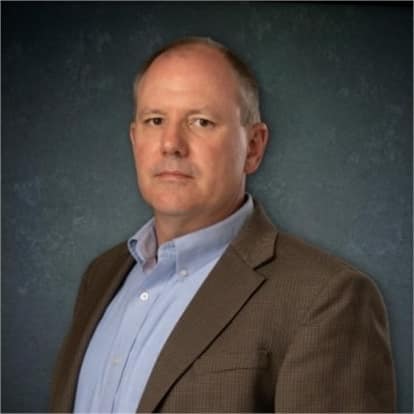
Mark Muha
Mark Muha

Mark Muha currently is a senior system security engineer in the NASA Aeronautics Research Mission as a lead for cybersecurity and system security engineering activities. This role includes the research and development of aviation cybersecurity capabilities as well as security engineering efforts in mission R&D projects to develop and design secure and securable technologies. Most recently, Mark served over the past three years as the cybersecurity technical lead on NASA’s Advanced Air Mobility project.
Mark is a seasoned cybersecurity professional who is passionate about system security engineering and the belief that building security into complex systems at the earliest possible stages of development is paramount. With over 25 years of technical and information security experience, he has a diverse background in information systems and operational technology security, security engineering, data analytics, and digital forensics, working that last 7 years in aviation cybersecurity domain.

Dr. Li Yang
Dr. Li Yang

Dr. Li Yang has been serving since 2019 as program director for the NSF CyberCorps and Secure and Trustworthy Cyberspace programs, which seek to advance and bolster the U.S. cybersecurity education and workforce development. Prior to her tenure at NSF, Dr. Yang was a Guerry Professor and Director of the Information Security (InfoSec) Center at the University of Tennessee at Chattanooga (UTC).
Dr. Yang's research encompasses network and information security, mobile security, big data analytics, massive data mining, bioinformatics, cybersecurity education, and engineering techniques for complex software system design.
Participants
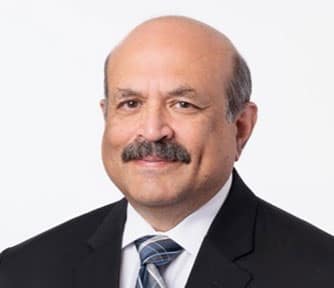
Sanjay Bajekal
Collins Aerospace
Sanjay Bajekal

Mr. Bajekal is the Senior Technical Fellow, Research, at Collins Aerospace Interiors Advanced Technology and Excellence in Engineering organization. He is the holder of twenty-seven granted patents, author of numerous peer reviewed publications and an invited speaker on wireless and communications topics as applied to aerospace applications. Mr. Bajekal and his teams have been responsible for advanced communications and signal processing architectures ranging from consumer wireless products to broadband (10 GHz) active crosstalk cancellers for internet switch router backplanes.
He chaired the sub working group on co-existence and non-interference of RTCA’s sub-committee 236 that is working to develop the Minimum Operating Performance Standards (MOPS) for Wireless Avionics Intra-Communications (WAIC) systems. The work performed by this group resulted in DO-378 and DO-378A. He has also been active on the SAE Cabin Secure Media Independent Messaging (CSMIM) committee, whose work is scheduled to be published as ARINC 853.
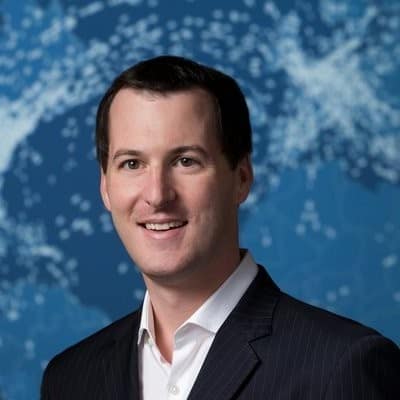
Daniel Baker
Daniel Baker

Daniel Baker is the founder of FlightAware, the global aerospace data company, and served as CEO from 2005 until its sale to Raytheon Technologies in 2021. He has been in the Internet services business for over 30 years and the aviation industry for over 20 years.
Currently, Baker is a technology investor and philanthropist, including serving as a board member of the Smithsonian Institution’s National Air and Space Museum and Aspen Public Radio. He is an aviation safety expert and advocate who serves on the Aspen Airport’s Safety Task Force, and was the chair of the General Aviation Manufacturers Association’s Safety and Accident Investigation Committee.
Baker is a pilot instructor and holds FAA Commercial Pilot and Flight Instructor certificates.
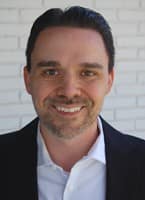
Mathew Barreras
Mathew Barreras

Mathew Barreras is the Director of Infrastructure and Cybersecurity at Mesa Airlines, a regional carrier operating Embraer E-175 aircraft for United Express. With over 20 years of experience in IT, he has held both individual contributor and leadership roles, specializing in infrastructure, cloud computing, mobility, and cybersecurity.
He holds a Bachelor of Science in Information Technology from Arizona State University and multiple IT and cybersecurity certifications. He is also a veteran of the Arizona Army National Guard where he served six years in the Signal Corps.
At Mesa Airlines, he has played a key role in designing and implementing the company’s cybersecurity program, aligning with the NIST Cybersecurity Framework and TSA regulations. He has led initiatives to establish governance, develop policies, source staffing and tools to enhance the airline’s security posture, and secure critical infrastructure. In addition to his corporate role, he serves on the cybersecurity committee of a business association that advocates for regional airlines before federal regulators.
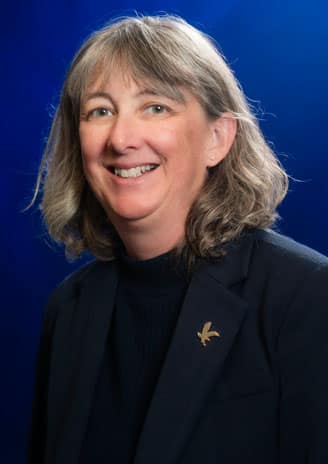
Dr. Anne Boettcher
Dr. Anne Boettcher

Anne Boettcher is the Assistant Dean of Research at Embry-Riddle Aeronautical University (ERAU) in Prescott, Arizona and is a past-president of Council on Undergraduate Research (CUR). Prior to joining Embry-Riddle, she was a Professor of Biology and Undergraduate Research Program Director at the University of South Alabama. While at South Alabama, she served as co-principal investigator for NSF-REU and principal investigator for Merck-AAAS programs, mentored more than 60 undergraduate and graduate research students, and integrated research and ethics components into all her courses.
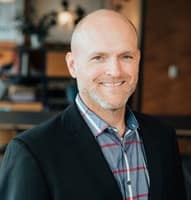
Doug Britton
Doug Britton

Doug Britton is EVP and Chief Strategy Officer of RunSafe Security and a member of its board of directors. As RunSafe’s CTO, Doug plays an essential role in showcasing how RunSafe’s technology changes the economics of cyber defense, and he has been instrumental in driving the RunSafe technology strategy and roadmap, the development of its patent portfolio and IP strategy, managing software development teams, and building a world-class security research team.
Prior to RunSafe Security, Doug founded Kaprica Security which sold its Tachyon business to Samsung. He has also managed large-scale security research, reverse engineering, and exploit development programs for Lockheed Martin and SAIC.
A trained computer scientist, Doug started his career in the National Center for Supercomputing Applications at the University of Illinois, before serving as a Russian Linguist and Interrogator in the US Army. He has also earned an MBA from University of Maryland and mentors several entrepreneurs and students launching their business.
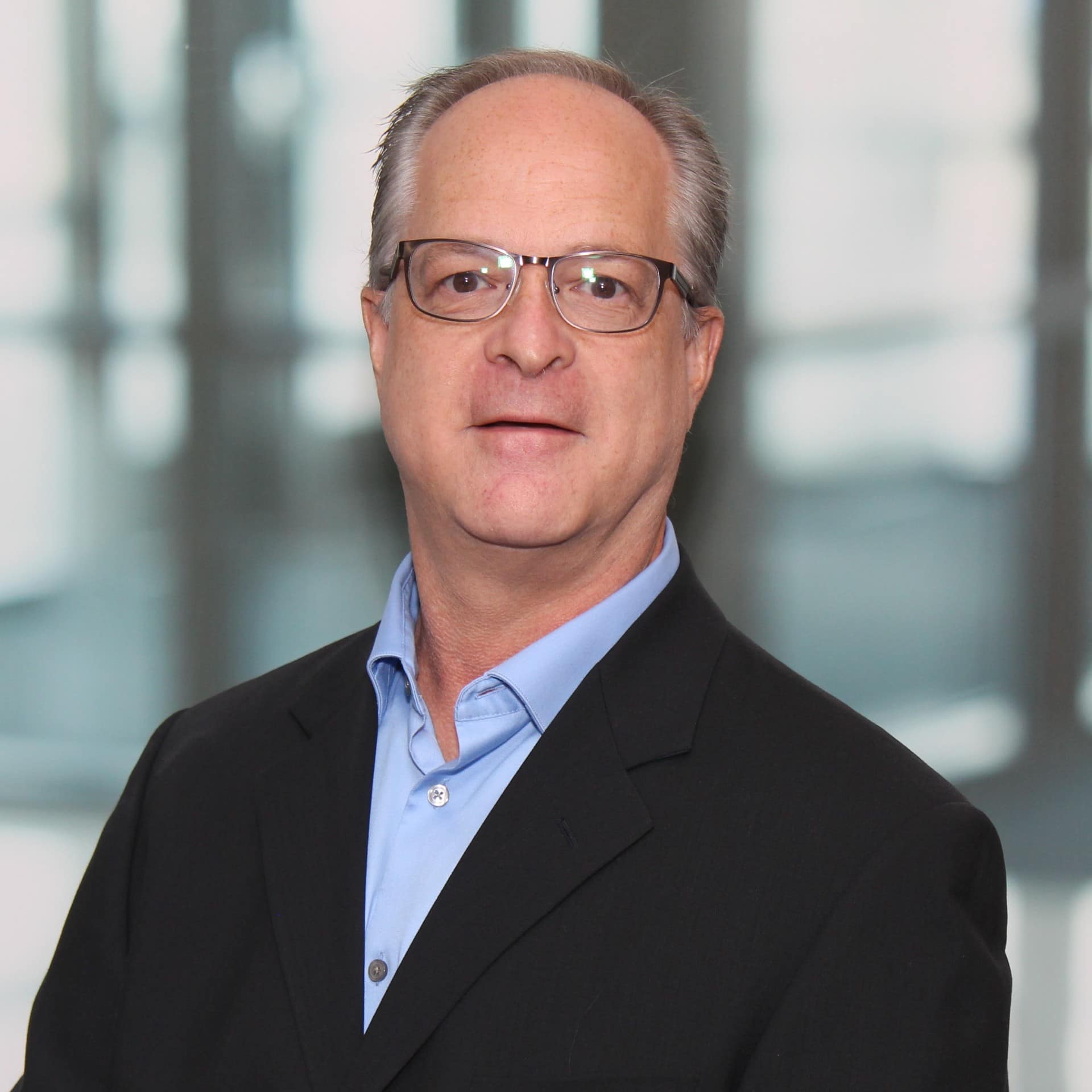
Glenn Burnett
Glenn Burnett

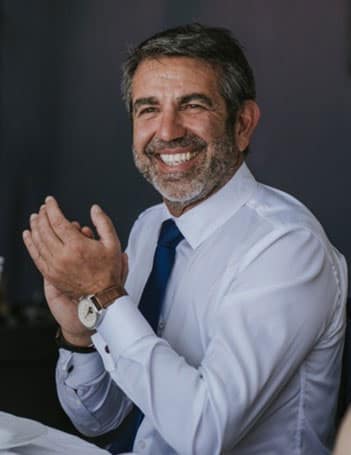
Stephane Chopart
Stephane Chopart

Stephane Chopart embarked on his career in the French Air Force as a Cyber Security Officer and served for fifteen years as cyber security officer. Mr. Chopart was hired by Airbus in 2006 and worked on A380, A400M and A350 security solutions as a PKI expert for the Aircraft Security Team in Toulouse. Afterwards, Stephane transitioned to the role of Product Security Officer for Airbus Helicopters in 2016 and was nominated Senior Expert in Overall Aircraft Security. Since 2023, Stephane has been in the US acting as civil CISO for Airbus North America. During his career, Stephane has authored a few patents dealing with onboarded cryptographic mechanisms. He is married and has two children.
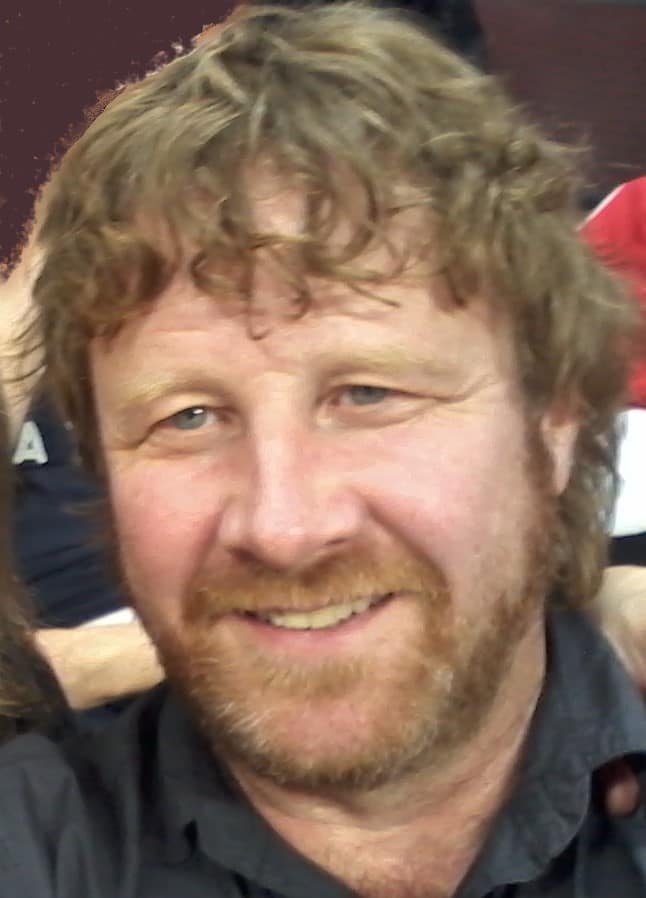
Don Christie
Don Christie


Jerry Davis
Jerry Davis

Jerry Davis is a seasoned cybersecurity leader with extensive experience as a five-time senior executive-level CISO/CSO and a former CIO. He currently serves as a Senior Executive Advisor at Microsoft and was previously the Senior Vice President of Cyber Operations and Technology at Truist Bank.
Appointed by the Secretary of the Department of Homeland Security (DHS), Jerry served as an advisor and board member on the Cyber Safety Review Board (CSRB) within CISA. He also contributed to the 2023 publication Securing the Nation’s Critical Infrastructure: A Guide for the 2021-2025 Administration, authoring a chapter on cybersecurity challenges and opportunities in space, air, and ground transportation. Additionally, he is a fellow at the Institute for Critical Infrastructure Technology, a nonpartisan think tank in Washington, D.C.
Jerry’s previous roles include Vice President and CISO at PG&E, founder of Gryphon X, LLC, and the first Vice President and Global CSO for a Silicon Valley semiconductor equipment manufacturer. He also held key government positions, serving as CIO of NASA Ames Research Center, NASA’s Global CISO, CISO for the U.S. Department of Education, and Deputy Assistant Secretary for Cybersecurity and Privacy (CISO) at the U.S. Department of Veterans Affairs.

Pamela Davis
Pamela Davis

Pamela Davis is a member of Southwest Airlines’ newly-formed Cybersecurity Aircraft Team, where she helps lead the team’s Intelligence and Incident Response unit. With 25+ years in aviation Security and Safety leadership across major US airlines, she has used her wealth of experience and expertise to vigilantly help protect organizations from threats impacting aviation as well as providing guidance to the industry. Pamela has successfully built multiple teams throughout her long career with oversight across multiple domains.
She credits her success to her faith, family, unwavering dedication, proactive approach to building strong networks, and keen insight into both aviation cyber and physical security. While airline security is a huge passion for her, Pamela is also a multi engine-licensed commercial pilot. Outside of work, Pamela serves as Director of Community Services with a deep passion for helping the homeless, teaches kids each weekend, is a sports enthusiast, voracious reader, and enjoys spending time with family. She is based in beautiful Arizona.
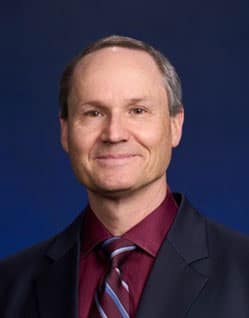
Dan Diessner
Dan Diessner

Dan Diessner joined Embry-Riddle Aeronautical University in late 2020, where he is currently the Executive Director for the Center for Aerospace Resilient Systems, which is the Embry-Riddle wide research center focused on aerospace cybersecurity. Dan also serves the aviation community as a member of several organization and advisory boards, including: UN International Civil Aviation Organization (ICAO): Secretary General appointed Technical Advisor to the ICAO Trust Framework Panel (TFP), and TFP leadership team member; FAA Research Engineering & Development Advisory Committee (REDAC) – Subcommittee on Aircraft Safety (SAS): Advisory committee member for Aircraft Cybersecurity and Aircraft Systems; Cyber Safety Commercial Aviation Team (CSCAT): Leadership team member, (formerly the founding Chairperson); Aerospace Industries Association (AIA) Civil Aviation Cybersecurity Subcommittee: Invited observing member, (formerly the founding Chairperson); Member of the Aviation Cybersecurity Initiative (ACI) N-Factor Industry Advisory Board on Research, Development, Test and Evaluation (RDT&E) Initiatives.
Prior to joining Embry-Riddle, Dan worked at The Boeing Company for over 34 years leading innovation in airplane systems, product cybersecurity, network systems, and mission communications & data systems, with a career focused on the implementation of new technology & product development for both commercial and military transport aircraft. Two capstone positions Dan held prior to retiring from The Boeing Company included: Chief Engineer for Airplane Systems Product Development & New Technologies for Boeing Commercial Airplanes (BCA), and Senior Manager of the BCA Product Cybersecurity and Airplane Software Integration organization. During this time, he was committed to the global community in many areas including as an ICCAIA Security Committee member and leadership team member of the ICAO Trust Framework Study Group as well as an early member of the ICAO Secretariate Study Group Cybersecurity. Dan was a founding member and Chairperson of the AIA Civil Aviation Cybersecurity Subcommittee, a founding member and Chairperson of the Cyber Safety Commercial Aviation Team, and a member of the Board of Directors (BoD) of the Aviation ISAC.
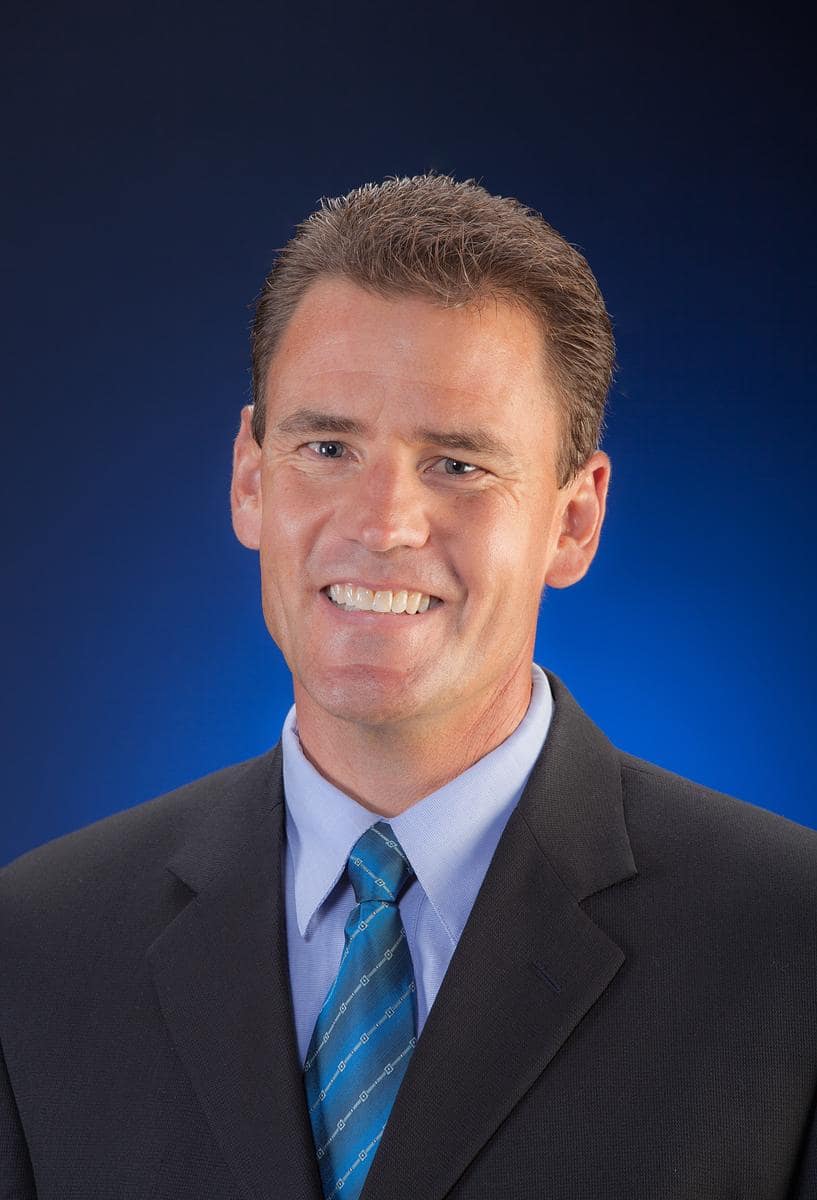
Dr. Thomas Drape
Dr. Thomas Drape

Dr. Thomas Drape serves as the Dean of the College of Business, Security and Intelligence (CBSI) at Embry-Riddle Aeronautical University’s Prescott Campus. With over two decades of experience in military, academic, and administrative leadership, Dr. Drape brings a unique blend of expertise to CBSI, helping to guide the college’s focus on innovation, global engagement, and academic excellence in the intersecting fields of business, security, and intelligence.
A graduate of the U.S. Air Force Academy, Dr. Drape also holds an MBA from the Katz Graduate School of Business at the University of Pittsburgh and earned his Ph.D. with honors from IESE Business School in Barcelona, Spain. During his 20-year service in the U.S. Air Force, he worked as a program manager and procurement specialist, leading multi-million dollar aerospace projects and earning top-level certifications in program management. His academic roles have included leadership positions at the U.S. Air Force Academy, the George C. Marshall European Center for Security Studies in Germany, Azusa Pacific University, and Embry-Riddle Aeronautical University.
Dr. Drape has spearheaded numerous international academic initiatives, leading study-abroad programs across more than fifteen countries including Turkey, China, Japan, and Italy. He is passionate about cultivating global perspectives in students and building government, industry, and academic relationships that enrich CBSI’s programs. Under his leadership, CBSI is strengthening its global reputation as a hub for preparing future leaders in aviation, aerospace, security, and intelligence.
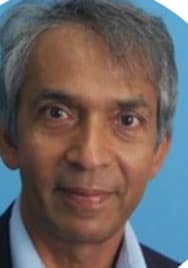
Dr. Farid Dowla
Dr. Farid Dowla

Dr. Dowla, a research scientist at Lawrence Livermore National Laboratory (LLNL), has dedicated his career to advancing knowledge in signal processing, wireless communications, and radar systems since joining LLNL in 1984. His academic journey commenced at MIT, where he received his BS, MS, and PhD degrees in electrical engineering and computer science. His current research interests focus on secure communications, advanced radar systems, and sensor networks. Over his four-decade-long research career, he has contributed significantly to academia, teaching graduate courses in cyber security, wireless communications, radar technology, and machine learning at various University of California and ERAU campuses.
His publication record includes research journals and conferences, along with authored books and edited volumes in his field. Dr. Dowla holds numerous patents in areas such as secure communications, radio frequency identification (RFID) systems, and ultra-wideband (UWB) technology. His contributions have been recognized with prestigious awards like the R&D 100 Winner, LLNL Engineering Technologies Division Gold Award, and IEEE Best Paper Award, among others. Moreover, he has successfully secured substantial grant support for various research projects, showcasing his impact and influence in both academia and industry.
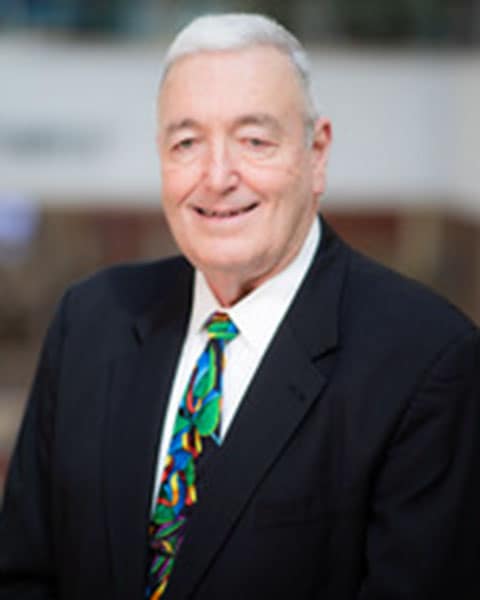
Dr. Drew Hamilton
Dr. Drew Hamilton

Dr. John A. Hamilton, Jr. is the Director of the Texas A&M University Cybersecurity Center and a professor of Computer Science and Engineering. Dr. Hamilton has a joint appointment with Idaho National Laboratory and serves as a guest scientist at Los Alamos National Laboratory. At Mississippi State University, he was the Founding Director for the Center for Cyber Innovation. Previously, he held an endowed chair as Alumni Professor of Computer Science and Software Engineering with joint appointments in Industrial & Systems Engineering and Management at Auburn University, and was the Founding Director of the Auburn Cyber Research Center. Dr. Hamilton is a Fellow of the Society for Modeling & Simulation International (SCS), Past Chair of the Association for Computing Machinery’s (ACM) Special Interest Group on Ada (SIGAda) and Past Chair of ACM’s Special Interest Group on Simulation (SIGSIM). He is a senior member of the Institute of Electrical and Electronics Engineers.
During his active-duty career in the United States Army, he served in several field artillery command and staff assignments and qualified in nuclear/chemical targeting. Dr. Hamilton served as the Director of the Officer Training Department at the US Army Computer Science School at Fort Gordon. He was a member of the Electrical Engineering & Computer Science Faculty of the United States Military Academy, West Point, where he served as the department research director. He led two DOD program offices with multimillion-dollar budgets.
Dr. Hamilton has a B.A. in Journalism from Texas Tech University, an M.S. in Systems Management from the University of Southern California, an M.S. in Computer Science from Vanderbilt University and a Ph.D. in Computer Science from Texas A&M University. Dr. Hamilton is a distinguished graduate of the U.S. Naval War College.
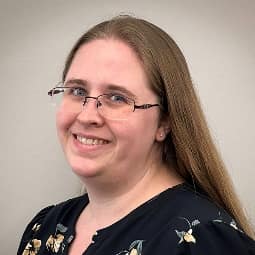
Kathleen Finke
Kathleen Finke

Kathleen Finke is the manager of Avionics Security Assurance for Astronautics Corporation of America. She leads a team of cybersecurity, systems, and software engineers focused on the cybersecurity of avionics systems, including new projects, regulatory certification, advanced toolsets, and the development of new cybersecurity products.
Finke holds a Bachelor of Science degree in Aerospace Engineering and 13 years of professional and leadership experience in the aerospace industry with a focus on avionics development and continued airworthiness. Across her roles at Astronautics Corporation of America, she has contributed to both the FAA Aircraft System Information Security/Protection (ASISP) program and more recently the FAA Cybersecurity Data Science (CSDS) program. Finke is currently working with industry cybersecurity committees, such as Aerospace Industries Association (AIA) and Cyber Safety Commercial Aviation Team (CSCAT), to support collaboration on definition for a range of topics including supply chain vulnerability and frequently asked Questions (FAQs) for DO-356 implementation.

Levi Gundert
Levi Gundert

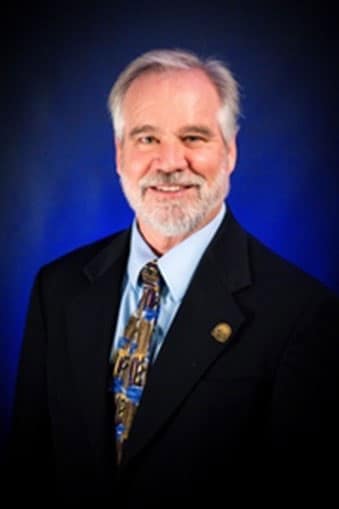
Dr. Jon Haass
Dr. Jon Haass

Jon C. Haass was the founding faculty and served as department chair of the Cyber Intelligence and Security degree programs at the nation’s first College of Security and Intelligence at Embry‑Riddle Aeronautical University in Prescott, Arizona. He served for more than two years as the interim Dean of the College, succeeding founding Dean Philip E. Jones. His vision for the Cyber department is to build upon the success as both a NSA/DHS designated Center of Academic Excellence and ABET accredited program through outreach to improve the national and international reputation through excellence in our graduates, impactful publications and grants, expansion of offerings in its degree programs and increased partnerships with private and public organizations.
Dr. Haass was appointed by Governor Ducey to represent northern Arizona on the Arizona Cybersecurity Team. He also serves as advisory board member for the Arizona Cyber Threat Response Alliance (ACTRA), a regional information sharing and analysis organization that includes companies in 14 of the critical infrastructure sectors, including aviation. His areas of research interest include the security issues associated with connected cyber-physical systems that encompass airplanes, cars, industrial controls and more. This Internet of Things (IoT) is likely to open an even larger portion of societies systems to cyber based attacks requiring us to educate our students, developers and leaders to the importance of this relatively new domain using machine learning and AI methods.
Since 2017, he has promoted the concept of "The Center for the Future", an incubation, innovation and acceleration space for companies that would collaborate with the students and faculty of the campus, creating high quality jobs in the greater Prescott region. With former Chancellor Frank Ayers this was successfully presented in March 2019 to the Prescott City Council, in August 2020 the Council approved allocating funds to seed the concept. In partnership with fiscal sponsor Prescott Chamber Foundation and numerous other organizations Prescott Regional Opportunity Foundation and its Center project has operations in downtown Prescott, celebrating it's two year anniversary this past July 2023.
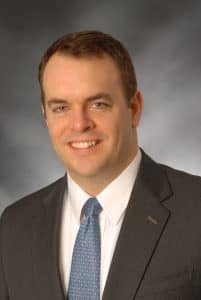
Jens Hennig
Jens Hennig

Jens Hennig is Vice President, Operations, Safety & Security at the General Aviation Manufacturers Association (GAMA). He is responsible for GAMA’s activities for advancing safety, security, and operations. He is the association’s primary staff person on air traffic control modernization and issues impacting aircraft flight operations.
Jens’ engagement in policy and rulemaking committees during the past two decades covers a wide range of safety and security policy topics including ADS-B rule development and implementation, standards for navigation and communications, and pilot qualifications. He chaired FAA’s airman training and testing standards rulemaking committee which developed today’s framework for U.S. pilot training and also managed the agency’s review of the Part 135/125 air carrier regulations. He is actively engaged in the General Aviation Joint Safety Committee which is an essential body for advancing GA safety based on data-driven, systematic processes, and serves as co-chair of its Safety Analysis Team.
Jens has served in the aircraft manufacturer seat on the U.S. Transportation Security Administration’s Aviation Security Advisory Committee (ASAC) and serves as its general aviation subcommittee chair. He also served as co-chair of FAA’s Aircraft System Information Security / Protection working group on cybersecurity.
Mr. Hennig provides technical analysis about security, funding, and air traffic control modernization to GAMA’s government affairs team. He has testified about NextGen and homeland security before the U.S. Congress.
He has been a member of the European Union Aviation Safety Agency’s (EASA) Flight Standards subcommittee since its formation in 2005, focusing on the agency’s extension of scope and the establishment of a safety agreement between the European Union and the United States. He served as chair of EASA’s Operational Suitability Data rulemaking group for type design changes and was a member of the committee that developed the regulatory amendment for operation of single engine turbine airplanes in commercial service as well as rulemaking tasks focused on surveillance and data link services. Previously Jens served as the GA manufacturing industry’s representative on the Joint Aviation Authorities Operations Sectorial Team.
Hennig is actively involved with advancing data collection about the general aviation industry and frequently presents overviews of the state of general aviation, including the quarterly industry aircraft shipment report and about the manufacturing industry’s impact on the economy and a positive trade balance.
Jens has served on the RTCA Advisory Board since 2019 and the RTCA Program Management Committee since 2013. He joined the National Aircraft Finance Association (NAFA) board in 2022 for a three year term.
Having joined GAMA in 2003 as Manager of Operations after a stint as manager of flight operations for contract training at Embry Riddle, Jens has advanced to Vice President, Operations, Safety & Security. Originally from Örnsköldsvik, Sweden, he holds a Bachelor of Science with honors in Aerospace Engineering from Embry Riddle Aeronautical University and a Master of Business Administration in Aviation.
Jens serves as the staff contact for GAMA’s Flight Operations Policy Committee and the Security Issues Committee.
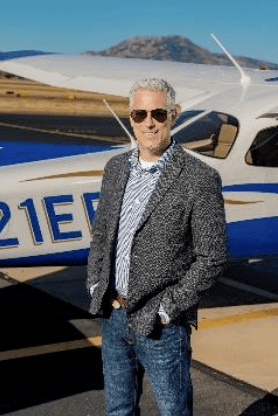
Dr. Tim Holt
Dr. Tim Holt

Dr. Holt is a Tenured Professor in the College of Aviation, with Embry-Riddle Aeronautical University, teaching undergraduate and graduate courses in aeronautics, safety, unmanned systems, and airport management for the Bachelor of Science in Aeronautics program and the Master’s in Safety Science program.
Before assuming his current role, he served a twenty-two-year career in the United States Navy, retiring as a Chief Petty Officer. A Naval Aircrewman while on active duty, he operated on both fixed wing (P-3 Orion) and rotary wing (MH-60S KnightHawk) aircraft logging over 2,500 hours as both a Flight Instructor and Evaluator.
He served as Operations, Training, and Safety Chief and flew as an Electronics Warfare Operator for Patrol Squadron 67, Patrol Squadron 65, and Patrol Squadron 64. He was also Operations and Safety Chief on the staff of the Commander Patrol Wing, and served as Training Officer, Rescue Crew Chief, and NATOPS Flight Evaluator on the Staff of Commander Helicopter Wing. Dr. Holt’s last assignment was as the Director of the Reserve Helicopter Training School in San Diego, CA where he taught helicopter operations, search and rescue, SEAL Team insertion/extraction tactics, and was the MH-60S Program Manager. He has received numerous awards and decorations, including the Navy Commendation Medal and the War on Terrorism Service Medal.
Dr. Holt developed and instructed courses pertaining to Crew Resource Management, Aircraft Accident Investigation, The Safety Management System and Introduction to Annex 14 Regulations for Airports Council International (ACI) in accordance with International Civil Aviation Organization (ICAO) standards to airport safety managers and staff located throughout the world. He assisted in the development and implementation of the Safety Management System for Teterboro Airport and the Port Authority of New York and New Jersey and has authored Aviation Security Programs, Emergency Response Procedures Guides, Aviation Internal Self-Evaluation Checklists, and Hurricane Evacuation Plans for numerous organizations.
He is a Fellow of the Royal Aeronautical Society, a Certified Member of both the American Association of Airport Executives and Airports Council International, and an Associate Member of the International Society of Air Safety Investigators. He is also a State of Arizona licensed teacher with endorsements in secondary English, History, and Career and Technical Education.
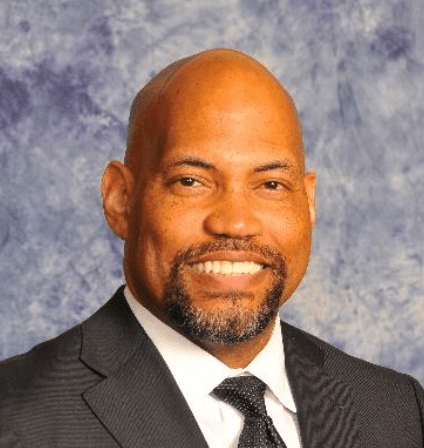
David Hopkins
David Hopkins

David Hopkinsis an innovative leader who guides companies in highly regulated industries taking technology to the “next level” as their businesses expand and grow through merger and acquisition. He is known for transforming vague issues into effective strategies and roadmaps that fully leverage the potential of evolving technology. With a unique ability to make the mundane exciting, he gets others to see the possibilities. David is articulate, persuasive and has a sense of humor that builds credibility and support.
Currently David serves as the Chief Information Officer for Mesa Airlines, a regional contract airline headquartered in Phoenix, AZ. David recently secured funding and resources to standup a major cybersecurity program for Mesa which will surpass TSA and newly announced, SEC cybersecurity requirements. Mesa Airlines operates a large fleet of regional jets and narrow body aircraft on behalf of our partners: United Express and DHL Express throughout the US, as well as Canada, Mexico, Cuba and the Bahamas. Previously David was the Vice President of IT Applications for CSAA Insurance Group, a AAA company, where David championed the firm’s technology and digital transformation.
Prior to that role, David rose through the ranks of American Airlines to division CIO/Managing Director of IT for Technical Operations (Tech Ops). At American Airlines David spearheaded the creation of the Project Management Office, effectively managing the integration of hundreds of Tech Ops systems through merger with US Airways. Earlier as an IT strategy expert, David championed a business-focused technology roadmap and overhauled the division’s governance structure.
David received a BSc in Computer Science from the University of Missouri and participated in the Director Education program of the Raj & Kamla Gupta Governance Institute, Drexel University. He holds two U.S. patents for RFID inventory management technology. Active in professional organizations and in the community, David is also an author, keynote speaker and Licensed Private Pilot.
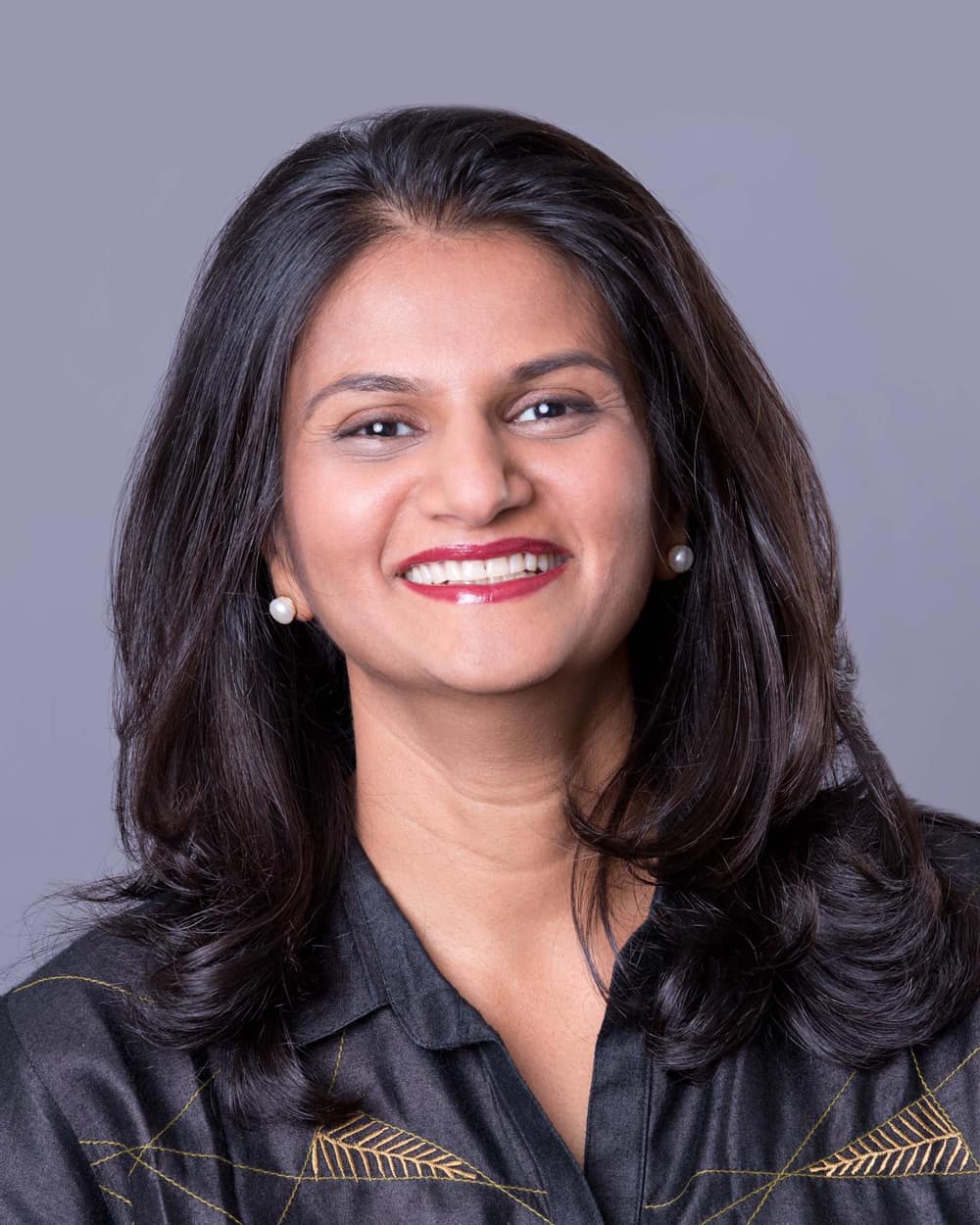
Dr. Alefiya Hussain
Dr. Alefiya Hussain

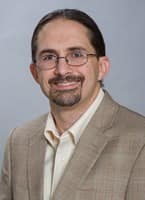
Frederick Jones
Frederick Jones

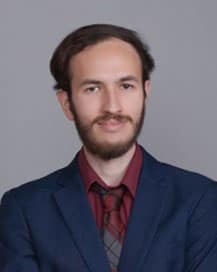
Matthew Kosednar
Matthew Kosednar

Matthew Kosednar is a Senior Engineer at United Airlines on the Cyber Defense Red Team. He is an Electrical Engineer who specializes in offensive cyber security and has over eight years of experience working in Critical Infrastructure. Matthew is able to leverage his unique background in Operational Technology to work across many parts of the aviation industry. He is a member of the Aviation ISAC and regularly collaborates with other security researchers.
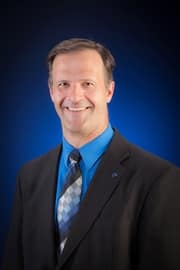
Dr. Ron Madler
Dr. Ron Madler

Ron Madler has been on the Aerospace Engineering faculty in the College of Engineering, at Embry‑Riddle Aeronautical University in Prescott, AZ since 1994. He served as dean from 2010 until 2023. He has teaching responsibilities in the Aerospace Engineering Department. His primary professional interests are in Engineering Education, Orbital Debris, Astrodynamics, Spacecraft Design, and Space Exploration.
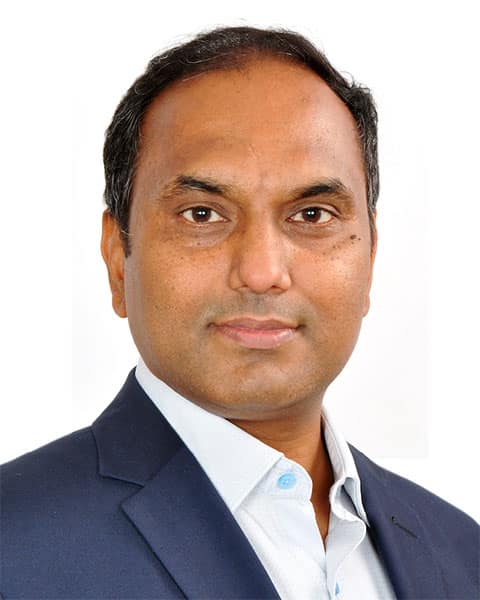
Sivaraman Mani
Sivaraman Mani

Sivaraman Mani is the Senior Software Engineering Manager for Honeywell's Anthem Integrated Network Server Unit (INSU) and Cyber Security. He has been with Honeywell for over 20 years, leading engineering teams to develop and manufacture cutting-edge aircraft control systems and gateway solutions. His focus is on making products cheaper and faster using real-time simulation, automation, reuse, lean processes and reapplication. He also ensures these products meet airworthy security standards for higher security assurance levels through optimal system and software architecture measures. With extensive global experience, he leverages talents and infrastructure worldwide. He assists with strategic planning, continuous improvement and promoting agility. He holds an Engineering degree and is a Certified Six Sigma Green Belt. He lives in Phoenix, and loves hiking and spending time with his wife and son.
Lawrence R. Marsala
Lawrence R. Marsala
Lawrence Marsala is a seasoned expert with over 20 years of experience in embedded hardware, firmware, and cybersecurity design. He currently serves as a Senior Principal Engineer in Product Cybersecurity Systems at BAE Systems Controls & Avionic Solutions (CAS). His specialty is in applying cryptographic solutions and adversarial analysis at the nation-state level to secure aviation, mission, engine (FADEC), and flight control systems. Lawrence holds an active Secret Security Clearance and has a strong background in cybersecurity Threat & risk analysis, system architecture, key management, and PKI strategies for commercial and military aviation products.
Lawrence has contributed to groundbreaking innovations throughout his career, including patent-pending ephemeral key management systems and novel cryptographic methodologies. His expertise spans leading-edge technologies such as Cybersecurity Risk analysis (DO-356A and CSEIG), model-based system engineering (MBSE), and designing cyber-resilient architectures to enhance mission assurance/survivability.
An award-winning cybersecurity architect, Lawrence's dedication to advancing aviation cybersecurity has made him a trusted leader in the field. With a passion for fostering cyber resilience and a proven track record of success, he continues to drive secure solutions for some of the industry's most challenging problems.
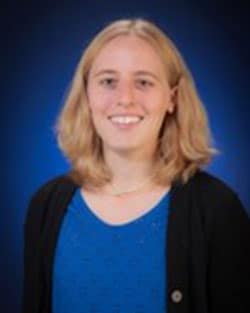
Dr. Kaela Martin
Dr. Kaela Martin

Dr. Kaela Martin is an Associate Professor of Aerospace Engineering at Embry-Riddle Aeronautical University’s Prescott Campus. She holds a Ph.D. and M.S. in Aeronautics and Astronautics from Purdue University, along with dual B.S. degrees in Aerospace Engineering and Mathematics from Iowa State University. Since joining Embry-Riddle in 2015, she has taught courses in Astronautics, specializing in space mechanics and satellite dynamics. Her innovative teaching methods have earned her recognition, including the 2018 Embry-Riddle Prescott Campus Teaching Innovation Award and the 2019 Distinguished Faculty Member Award.
Dr. Martin’s research focuses on astrodynamics, satellite dynamics and aerospace education. She has collaborated with NASA’s Jet Propulsion Laboratory on trajectory design and led a NASA-funded initiative to develop online modules on trajectory design and mission analysis. These efforts aim to make complex space exploration topics more accessible to students worldwide. Her contributions to aerospace education and research were recognized in 2024 when she was named an Associate Fellow of the American Institute of Aeronautics and Astronautics (AIAA).
Beyond research and teaching, Dr. Martin is passionate about mentoring undergraduate students. She has guided students in publishing research on interplanetary space mission design, helping them gain valuable experience in the field. Her dedication to education and student success continues to inspire future aerospace engineers and space explorers.
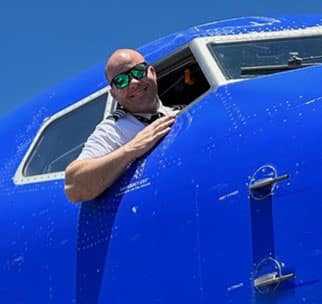
Matt Mayes
Matt Mayes

Matt enjoys bridging the realms of aviation and technology. Currently an airline pilot, he brings expertise from avionics engineering and EFB development, alongside valuable experience in both government and industry.
Beyond his cockpit duties, Matt serves as Deputy Director for the Aerospace Village, where he champions collaboration between the aerospace industry and cybersecurity researchers. Now in its 6th year, the Aerospace Village is one of the most popular areas at the yearly DEF CON hacker conference.
Warning! This rendering references a missing or unpublished data source.
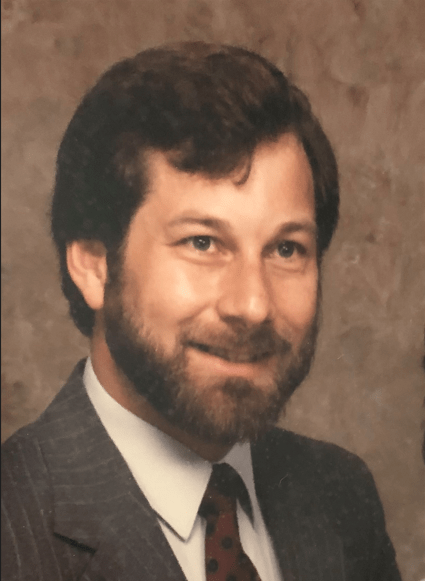
Scott McCrea
Scott McCrea

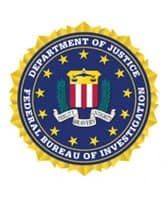
Riley Montgomery
Riley Montgomery


Tyler Morris
Tyler Morris


Ryan Murray
Ryan Murray

Ryan Murray joined the Arizona Department of Homeland Security in July 2021 and currently serves as the Deputy Director for Arizona Cyber Command and Chief Information Security Officer for the State of Arizona. He also previously served as the Chief Information Security Officer for the Arizona Department of Revenue.
In his current role, Deputy Director Murray provides tactical and operational leadership for Cyber Command, and strategic advice to key executive stakeholders throughout the State. Prior to joining the State in 2018, Ryan held several public sector positions throughout Arizona including in Maricopa County and the Crane School District.
He has nearly 20 years of experience in IT and Information Security, is a Certified Information Systems Security Professional (CISSP), Certified Cloud Security Professional (CCSP) and holds a Bachelor’s in Cyber Security and Information Assurance from Western Governors University.
This year Mr. Murray looks forward to accomplishing several key initiatives, including a significant expansion of the Department’s Cyber Readiness Program for local cities and counties, and increased collaboration for cyber information sharing across the State.
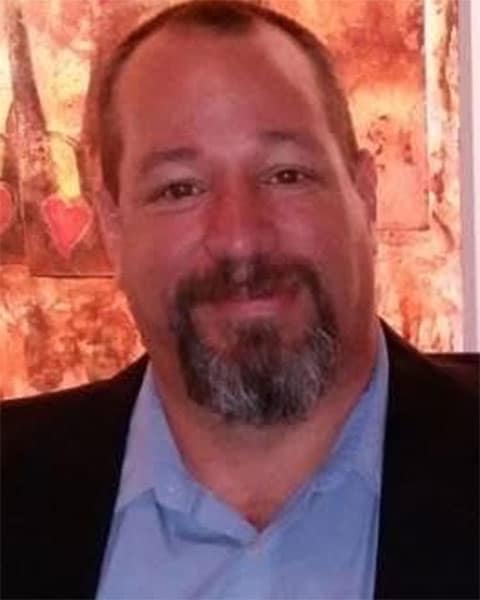
Brian North
Brian North

Brian A. North is a seasoned Cyber Survivability Architect with over two decades of experience in the aerospace and defense industry, specializing in mission systems, cyber engineering and avionics architecture. Throughout his career, he has held pivotal roles at leading organizations such as Lockheed Martin, Bell Helicopter, BAE Systems and Sikorsky Aircraft, where he has driven innovative architecture development and system integration strategies. With a strong focus on aerospace cybersecurity, Brian has led the design of secure cyber architectures, conducted Cyber Kill Chain analyses and authored System Security Plans, notably for programs including the V-280 FLRAA and F-35. He earned a Bachelor of Science in Information Technology from the University of Phoenix and holds a CISSP from ISC2.
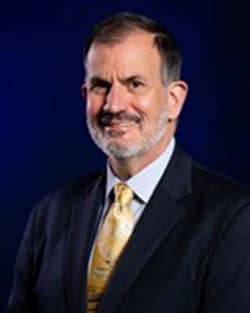
Parker Northrup
Parker Northrup

Professor Parker W. Northrup III, Colonel, USAF (Retired), serves as the Chair of the Flight Department and Assistant Professor of Aeronautical Science at Embry-Riddle Aeronautical University's Prescott Campus. In this role, he oversees operations, maintenance and support functions for over 850 flight students, facilitating more than 50,000 flight hours annually using a fleet of Textron-Cessna 172S and Diamond DA42 aircraft. Beyond administrative duties, Professor Northrup actively engages in teaching, both in the cockpit and online courses focusing on leadership and the role of airpower in U.S. national security strategy.
Before joining Embry-Riddle in 2017, Professor Northrup amassed over 24 years of service in the United States Air Force, accumulating more than 3,500 flight hours, primarily in the B-52 Stratofortress. His distinguished military career includes commanding roles such as leading the Air Force Element-Defense Threat Reduction Agency, the 5th Operations Group and the 11th Bomb Squadron. In recognition of his exceptional performance, he received multiple Department of Defense commendations and was awarded the 1996 Mackay Trophy for the most meritorious USAF flight of the year.
Professor Northrup's academic credentials are extensive, holding a Master of Science in National Security Strategy from the National Defense University, a Master of Arts in Industrial/Organizational Psychology from Louisiana Tech University and two master's degrees from Air University. He also possesses FAA certifications as a Commercial Pilot and Certified Flight Instructor. Beyond his duties at Embry-Riddle, he contributes to the community as a member of the Prescott Airport Advisory Committee.
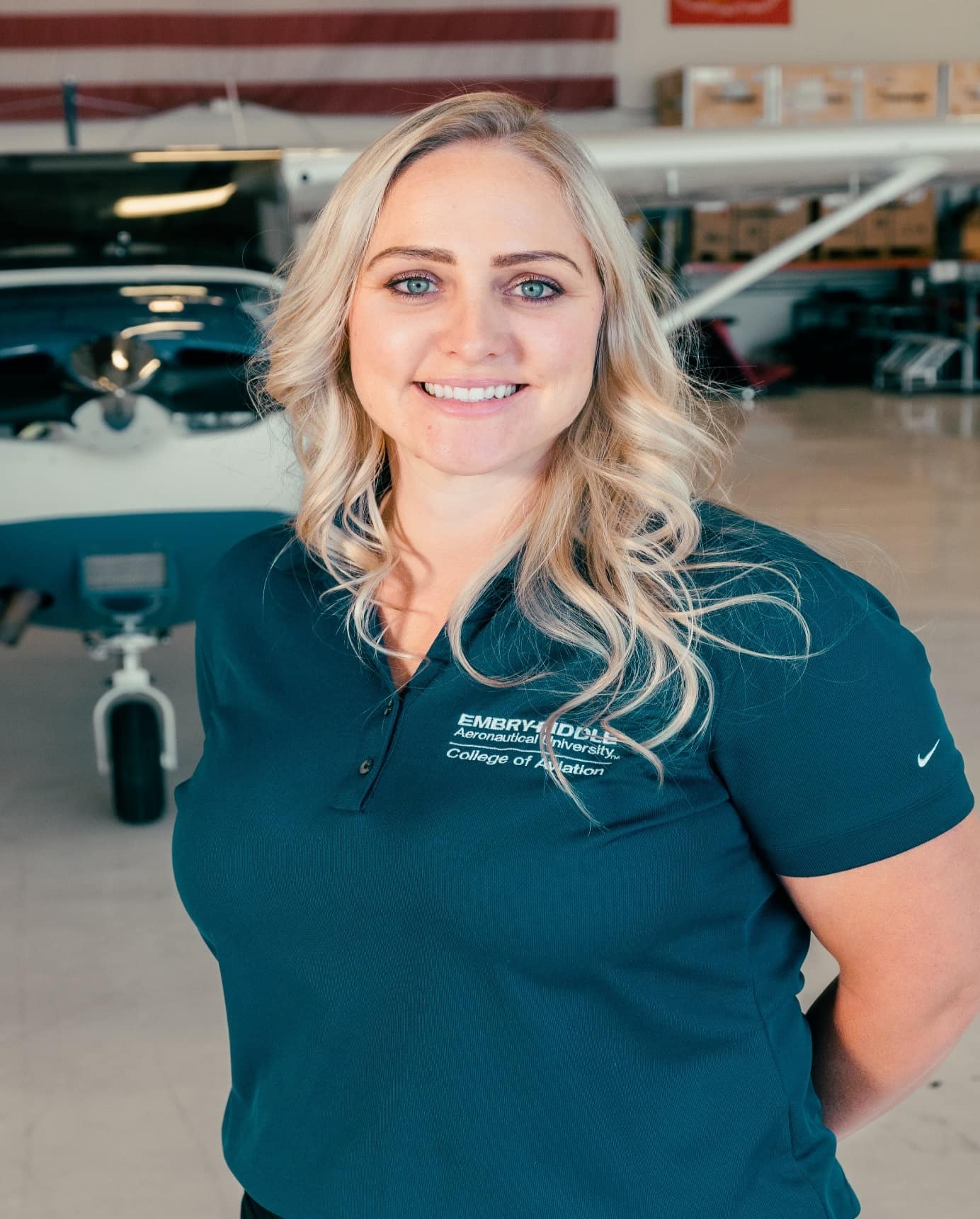
Dr. Jennah Perry
Dr. Jennah Perry

Jennah Perry is an Associate Professor of Air Traffic Management in the College of Aviation at ERAU. Professor Perry currently holds a Ph. D. in Educational Leadership, a M.A.S degree in Aeronautical Science with specializations in Human Factors in Aviation Systems and Education Technology, and a B.S. in Air Traffic Management. Additionally, she holds a Private Pilot Certificate as well as an Instrument Rating. Prior to her career with ERAU, Professor Perry spent 8 years working for Lockheed Martin Corporation as a certified Air Traffic Control Specialist where she earned FAA Certificates of Authority for Pilot Weather Briefing and En-Route Flight Advisory Services, after becoming a Full Performance Level Air Traffic Control Specialist and certified Training Instructor.
In 2013 Professor Perry began her career with Embry-Riddle, and in her eleven-year tenure with the College of Aviation, Professor Perry has served as an Associate Professor, Chair of the Air Traffic Management Program, Department Chair of Applied Aviation Sciences and most recently as the Interim Dean of the College of Aviation. In recent years, Professor Perry’s research areas have included aviation stress management, unmanned traffic management, UAS, flight training, teaching, and learning.

Kandy Phan
Kandy Phan

Kandy Phan is a principal cybersecurity researcher and red team lead at Sandia National Laboratories. He has worked there for over 20 years with a research focus on improving assessment capabilities for IT, ICS, electric vehicles, cloud, and specialized systems. He has led roadmap efforts to identify key investment areas for the future information security landscape and is the red team lead of the DOE CyberForce Competition, an event for college cyber defenders to learn about cyber-physical threats against infrastructure.
Kandy received his M.S. degree in Computer Science with a focus in Information Assurance from The Naval Postgraduate School. He is a speaker at security conferences such as the Red Team Summit and KernelCon and has published papers on using a threat-informed methodology to assess nuclear power plants to the American Nuclear Society NPIC/HMIT conference. His research interests include assessment automation, ICS and EV security, cyber threat emulation, and malware analysis.
His interests include exploring methods to improve red team performance, malware analysis, and automation for virtualization security.
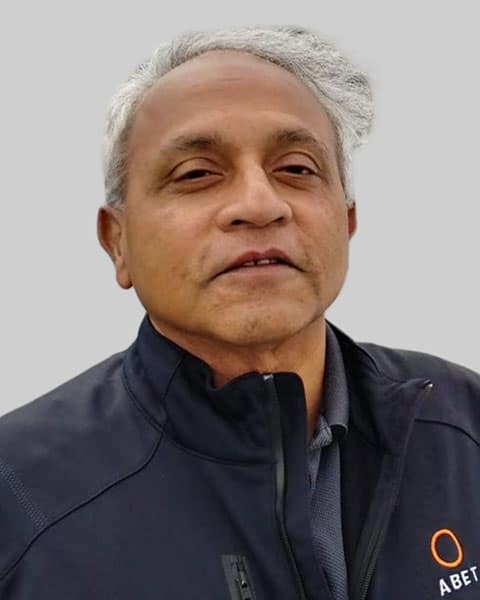
Dr. Rajendra K. Raj
Dr. Rajendra K. Raj

Dr. Rajendra K. Raj is a Professor of Computer Science at Rochester Institute of Technology (RIT), whose research lies at the intersection of data science and cybersecurity as applied to critical infrastructure protection. Dr. Raj’s work has been funded by various agencies, including the NSF, NSA and Homeland Security. He helped to establish the M.S. in Cybersecurity program at RIT over 20 years ago, developing its courses in Secure Coding and Data Security & Privacy. Before joining RIT, Dr. Raj was a vice president at a multinational financial services firm, where he designed, implemented and managed high-performance private cloud infrastructures for financial applications. He holds a Ph.D. from the University of Washington Seattle.
Committed to advancing the computing profession, he has held several leadership roles in ABET’s Computing Accreditation Commission (CAC), including serving as the 2021-22 Commission Chair. He previously chaired the CAC Criteria Committee that created cybersecurity accreditation criteria for bachelor's and associate degree programs. More recently, Dr. Raj co-chaired the ACM/IEEE-CS/AAAI task force that developed Computer Science Curricula 2023 (CS2023) and led the CS2023 Security Knowledge Area Subcommittee. He currently serves on the international task force of the ACM, IEEE Computer Society, IEEE Digital Privacy Initiative and IFIP, which is working on the first master’s-level curricular guidelines for Digital Privacy. He is a Fellow of ABET.

Nayyar Rao
Nayyar Rao

Nayyar Rao is a Senior Chief Engineer for Connected Aircrafts and Services at Honeywell Aerospace. He has been at Honeywell for over two decades and prior to the Chief Engineering responsibilities, Nayyar has held multiple engineering and leadership positions in the Communication, Navigation and Surveillance business of Honeywell. He is responsible and the signatory approver for design and development of connectivity enablers like gateways, edges, edge nodes, etc., which enable connectivity between onboard and off-board systems. Nayyar’s responsibilities also include Connected Aircraft Service Offerings, Cloud Platform Architectures, end to end cybersecurity and connectivity solutions. Nayyar also drives Data Engineering, Data Strategies and Governance mechanisms at Honeywell. Prior to Honeywell, Nayyar worked with the Ministry of Defense in India developing Fuel Gauging Systems and Night Vision Imaging Systems for military platforms.
Nayyar holds multiple degrees (BS in electrical engineering, MS in computer science, and MBA) and is a member of Aeronautical Society of India, AOPA and the PMI. He is a Certified Six Sigma Green Belt and Certified Design Thinking Trainer. Nayyar is passionate about the STEM initiatives at Honeywell and is very actively involved with the Paradise Valley School District and the Mesa School District. Nayyar sits on the Advisory boards of a few Universities for regulating course content and mentoring. In his spare time, he enjoys tinkering with automobiles, performance upgrades, detailing, and competitive motorsports.
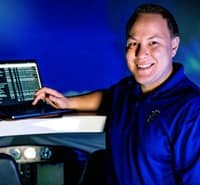
Andrew Recker
Andrew Recker

Drew Recker is a Cybersecurity Software Engineer Lead on multiple programs at Lockheed Martin Skunk Works. Skunk Works is the rapid capability and development for programs at Lockheed Martin Aeronautics where they build experimental prototype aircraft and systems. He runs NIST 800-53 Risk Management Framework cybersecurity approvals for embedded aircraft and systems, builds DevSecOps pipelines for software integration, works on Multi-Level Secure systems by integrating Cross Domain Solutions onto platforms, and works on autonomous platforms with a focus on Artificial Intelligence powered Unmanned Aircraft. He is involved with flight test operations and battlespace integration efforts to help rapidly promote capabilities to the warfighter. Prior to Lockheed Martin, Drew worked as a Cybersecurity Engineer at SAP, where he performed cyber defense as a blue team member, securing the company’s systems and programs.
Drew earned his Bachelor of Science in Cyber Intelligence and Security with a minor in Software Engineering from Embry-Riddle Aeronautical University, Prescott in 2019 and his Master of Science in Cybersecurity at Southern Methodist University in 2024. Drew volunteers at the Department of Energy’s CyberForce competition on the red team, and serves as the lead judge and cyber support of the Lockheed Martin CYBERQUEST® competition for the Texas region.
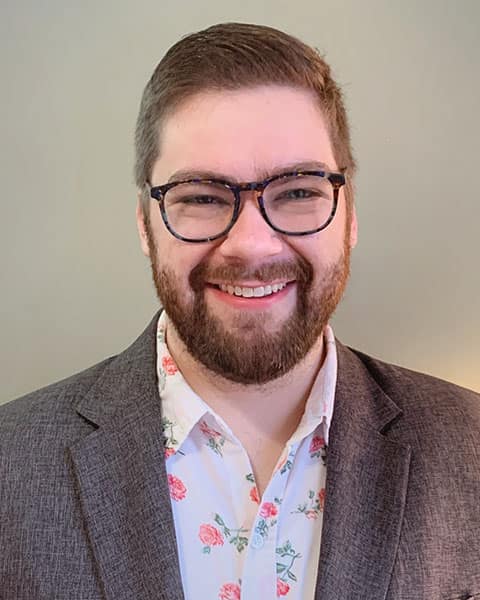
Daniel Riechers
Daniel Riechers

Daniel Riechers is a Senior Cybersecurity Engineering Manager at Collins Aerospace in the Avionics organization. His team designs, implements, assesses, tests and certifies security measures of commercial and military avionics equipment. Daniel holds a B.S. in Computer Engineering from Iowa State University and a Master’s Certificate in Software Engineering from Steven’s Institute of Technology. Daniel has worked in avionics cybersecurity for 10 years, with a significant focus on modernizing tools and processes used in testing and certification of airborne connected devices. Throughout his career, Daniel has taken brief side quests in platform software development, DevOps and consumer electronics.
Daniel’s background is highly technical, including embedded Linux software development, low-level device drivers, board bring up, lab setup, test automation, penetration testing, fuzz testing security critical and safety critical systems, networking, SELinux, trusted boot, trusted dataload, vulnerability and threat analysis, etc. Recently, his professional endeavors have ventured into people leadership and industry engagement. His background with trusted dataload has steered him towards participation in the SAE ITC SDL committee that writes the ARINC standards for software dataload of aircraft.
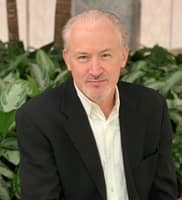
Derek Schatz
Derek Schatz

Derek Schatz has been working in cybersecurity for over 25 years, with much of that time in the aviation/aerospace sector at Boeing and in his currently role as head of information security for Virgin Galactic. At Boeing he was the technical lead for ground and airborne security for inflight Wi-Fi provider Connexion by Boeing, and later worked in the Commercial Airplanes division in Cabin and Network Systems. He represented Boeing in a number of international aviation cybersecurity standards committees, including as a founding member of both Eurocae Working Group 72 and RTCA Special Committee 216. As part of that work, he performed the industry’s first cybersecurity safety analysis using SC-216’s DO-326A process for the SwiftBroadband Safety specification in ARINC 781. At Virgin Galactic, he is responsible for the overall information security program for the leading provider of commercial private space travel. He lives in Southern California, where he enjoys hiking and gourmet cooking with his wife.
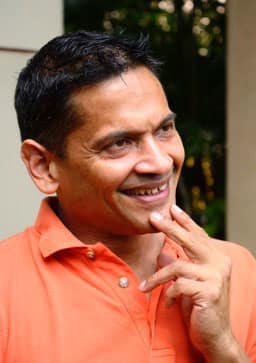
Dr. Raja Sengupta
Dr. Raja Sengupta

Raja Sengupta is a Professor of Civil and Environmental Engineering at UC Berkeley. Sengupta’s research focuses on automated cars, drones, connected cars, smartphone apps for economics & transportation, wireless networking, and control theory. He likes to do research on the industry and get it into the marketplace, and he holds car-to-road networking patents with Toyota, a UAV patent with BAE Aerospace, and car-to-car networking contributions standardized by the SAE into J2945.
Sengupta has been an advisor to the World Bank, is a recipient of the USDOT’s Connected Vehicle Technology award in 2011, the UC Berkeley Energy and Climate Lectures Innovation award in 2014, and has authored over a hundred papers spanning control theory, networking, drones, and transportation.
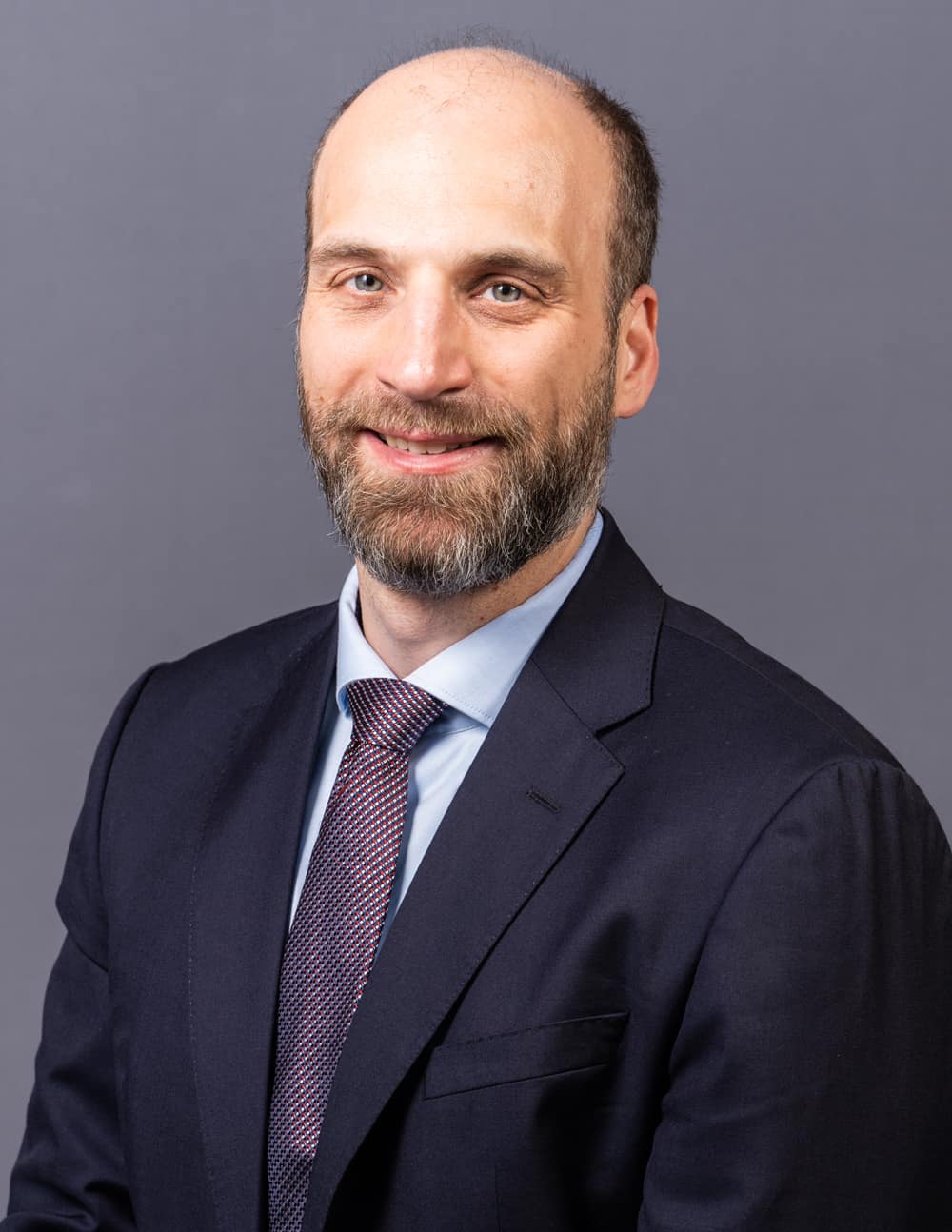
Dr. Stefan Schwindt
GE Aerospace
Dr. Stefan Schwindt

Dr. Stefan Schwindt is a Senior Principal for Aerospace Cybersecurity at GE Aerospace, based in Cheltenham, United Kingdom. In this role, he supports organizational and product security strategies, ensuring that GE Aerospace’s businesses and product lines remain secure and resilient. With over 16 years of experience in the aerospace industry, Schwindt has worked on safety and reliability of systems, environmental testing, certification, and product security for both civil and military aviation. He holds a master’s in aerospace engineering, a doctorate in engineering science, and an executive MBA.
Dr. Schwindt is actively involved in international aviation cybersecurity initiatives, serving as the Chair of the Civil Aviation Cybersecurity Subcommittee of the Aerospace Industries Association (AIA). He has played a key role in developing industry reports and recommendations, including those focused on secure software distribution and loading. Additionally, he contributes to RTCA Special Committee 216 and EUROCAE Working Group 72, shaping industry standards such as ED-201A. His work has been recognized with the RTCA Significant Contributor Award.
Dr. Schwindt is a recognized leader in aerospace cybersecurity, receiving the 2024 Aerospace Cybersecurity Excellence (ACE) Leadership Award from Embry-Riddle Aeronautical University. His global leadership in addressing cybersecurity threats in aviation and aerospace continues to influence industry standards and best practices. Beyond GE Aerospace, he is also the Director of Icarus Cybersecurity Consulting and Training, providing specialized expertise in cybersecurity for the aerospace sector.

Captain Stephen Taylor
Captain Stephen Taylor

Steve Taylor is the retired Chief Pilot of Boeing Commercial Airplanes. Over the course of his 30 year career with Boeing, his favorite assignment was the eight years he spent as the President of Boeing Business Jets.
Taylor serves as a Trustee of the Museum of Flight in Seattle, where he recently served as Board Chair. He is the past Board Chair of the General Aviation Manufacturer’s Association, has served on the boards of the Recreational Aviation Foundation and the Foundation of the Aircraft Owners and Pilots Association.
Taylor holds an Airline Transport Pilot’s license with twelve different turbojet type ratings, including all of the current Boeing models as well as the newest Gulfstream jets. He is an avid seaplane pilot and Aircraft and Powerplant mechanic.
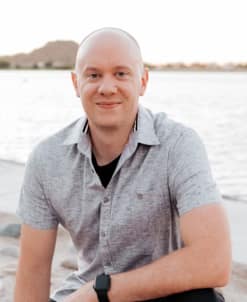
Stephen Thomas
Stephen Thomas

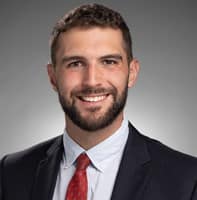
Matt Tomarchio
Matt Tomarchio


Nina Vajda
Nina Vajda

Nina Vajda is the Safety, Reliability and Cyber Security lead for Supernal’s aircraft platforms, which includes the development and presentation of Supernal’s certification documents to compliance regulators. Nina has over 30 years of professional experience working for aviation OEMs and suppliers, including Bell Flight, where she was a Tech Fellow and Boeing Commercial Airplanes and Honeywell Aerospace where she was a Chief Engineer.
Nina holds patents specific to identifying anomalous network activities due to a cyber-attack in avionics systems, and she has a patent pending for PKI and Key Management Systems to protect airborne data in transit. She is a member of the Board of Advisors at Emory Riddle Aeronautical University in Prescott, Arizona where she will finish a MS in Cyber Security after completing her thesis.
